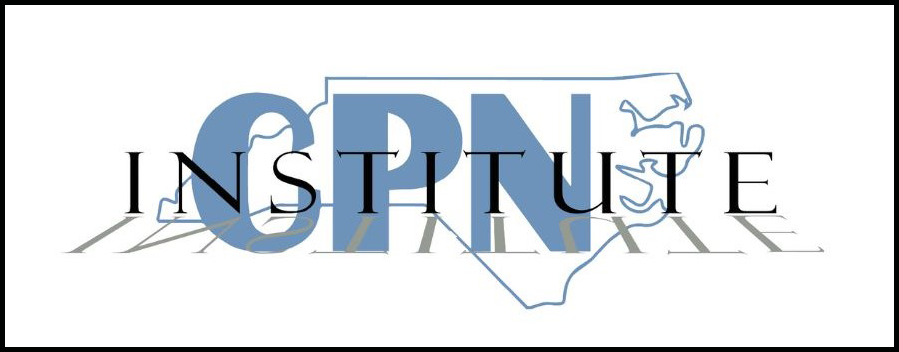As printed in The Daily Record, Dunn. April 11, 2018
http://www.mydailyrecord.com/eedition/erwin-officials-hear-findings-of-growth-study/
By LAURA PATTERSON
Of The Record Staff
Members of the Erwin Board of Commissioners were given a presentation last week at the regular monthly meeting regarding the NCGrowth and CPNI study.
Back in November 2017, the Town of Erwin hosted a two-day workshop with NCGrowth and CPNI (Construction Professionals Network Institute Inc.) which was attended by various town representatives, business owners and members of the community.
During the workshop, participants discussed the revitalization of town assets as well as promoting economic growth and development.
On Thursday night, Jim Schenck an attorney in Raleigh and representative with CPNI, along with NCGrowth representatives, Carolyn Fryberger, economic development manager, and Martine Aurelien, an analyst, gave a report of their findings.
Mr. Schenck explained that CPNI is a statewide group of construction industry professionals, including city planners, architects, engineers, contractors, lawyers, insurance agents and some lenders.
“Several years ago our group began offering free workshops to small towns in the state just as a public service,” Mr. Schenck said. “We gather six or seven volunteers to make a diverse group.”
CPNI, with the assistance of representatives from NCGrowth, present these workshops and compile a report with their recommendations.
“We visit the town for a couple of days, discuss the town’s strategies primarily for the use and reuse of underutilized or abandoned buildings and other built assets in the town,” Mr. Schenck said. “Almost every town in the state has some buildings or factory, something, that the they would like to put to better use.
“We recognize that and we come to towns to kind of provide a sounding board as to how they can use these buildings,” he said.
During their study they focused on the historic Erwin Mill; the historic mill housing stock; education, school infrastructure and the future of Erwin Elementary School; the old Good Hope Hospital; recreational assets; marketing and branding for the Town of Erwin; and the U.S. 421 transportation corridor.
“We zoomed in pretty quickly on the old mill,” Mr. Schenck said.
The mill property sits on 52 acres of land and is comprised of 13 buildings that sum to just under 1 million square feet. Currently, approximately 90 percent of the buildings are being used for storage. It is currently on the watch list for historical preservation.
In a submitted study report, possible uses for the mill was to be utilized as a mixed-use property where education, housing and innovation can thrive and help revitalize Erwin through such outlets as: student housing for students at Campbell University; health care including senior living or an urgent care; education opportunities, such as collaborating with local higher education institutions such as Campbell and vocational departments; a maker’s space such as incubator spaces for growing industries and businesses; commercial use, such as a brewery or movie theater; and rezoning so that the property can be used for mixed use.
Ms. Aurelien discussed marketing and branding for the town, saying Erwin could increase opportunities for economic growth and development by capitalizing on its character, charm and heritage. She said this could be done by using its history as the “Denim Capital of the World.” It was recommended that events, marketing and branding should be driven toward Denim Days.
The report of the study included the following recommendations: Create a Comprehensive Master Plan that includes a historical designation for the original mill and mill village, or a designation of the entire mill property as an overlay district for mixed use; engage in a publicprivate partnership with Campbell University and Central Carolina Community College; leverage the local nonprofit Harnett community group; and conduct analyses of and site visits to the former mills and facilities.
The study group said next steps for the town would be to create a task force; focus on projects that are manageable; continue a partnership with CPNI in association with NCGrowth to provide support where needed; and lobby and advocate for a new school building.
“Can you give us ideas on how to attract families?” Commissioner Billy Turnage asked.
Mr. Schenck talked about assets in the town like the mill, which was such a dominant part of the strageic plan and how it could grow the town and keep the town vital. He also suggested to keep the schools nearby, keep medical services nearby and to have employers come here.
Commissioner Randy Baker asked for some key points that would help the town to move toward the comprehensive plan that were used by other towns involved in the study.
Ms. Aurelien said that most of the other towns had some sort of institutional partnership, such as when Duke partnered with Durham during its revitalization.
Erwin Background
The Town of Erwin was known as Duke, named after the Duke family members who were prominent stakeholders in the newly-constructed Erwin Cotton Mill completed in 1904. In 1926, when Trinity College in Durham became Duke University, the town’s name was changed from Duke to Erwin.
Erwin has a population of 4,931; medium age is 42.8; poverty rate is 22.2 percent; median household income is $35,170; number of employees are 1,763; and median property value is $89,000.
The report listed Erwin’s amenities and attractions to include: access to the Cape Fear River, the Dunn-Erwin Rail Trail runs downtown, home to the historic Erwin Denim Mill and downtown structures are limited to two stores.
About NCGrowth/CPNI
NCGrowth works with local governments, businesses and community organizations to tackle outcome- based economic development and entrepreneurship projects. Its mission is to help businesses create good jobs and to help communities create sustainable and equitable opportunities for their people.
CPNI is a nonprofit initiative focusing on the construction industry and community service throughout the State of North Carolina. CPNI volunteers its members’ design and construction expertise as a catalyst to empower communities across North Carolina to improve their physical and economic environment.
